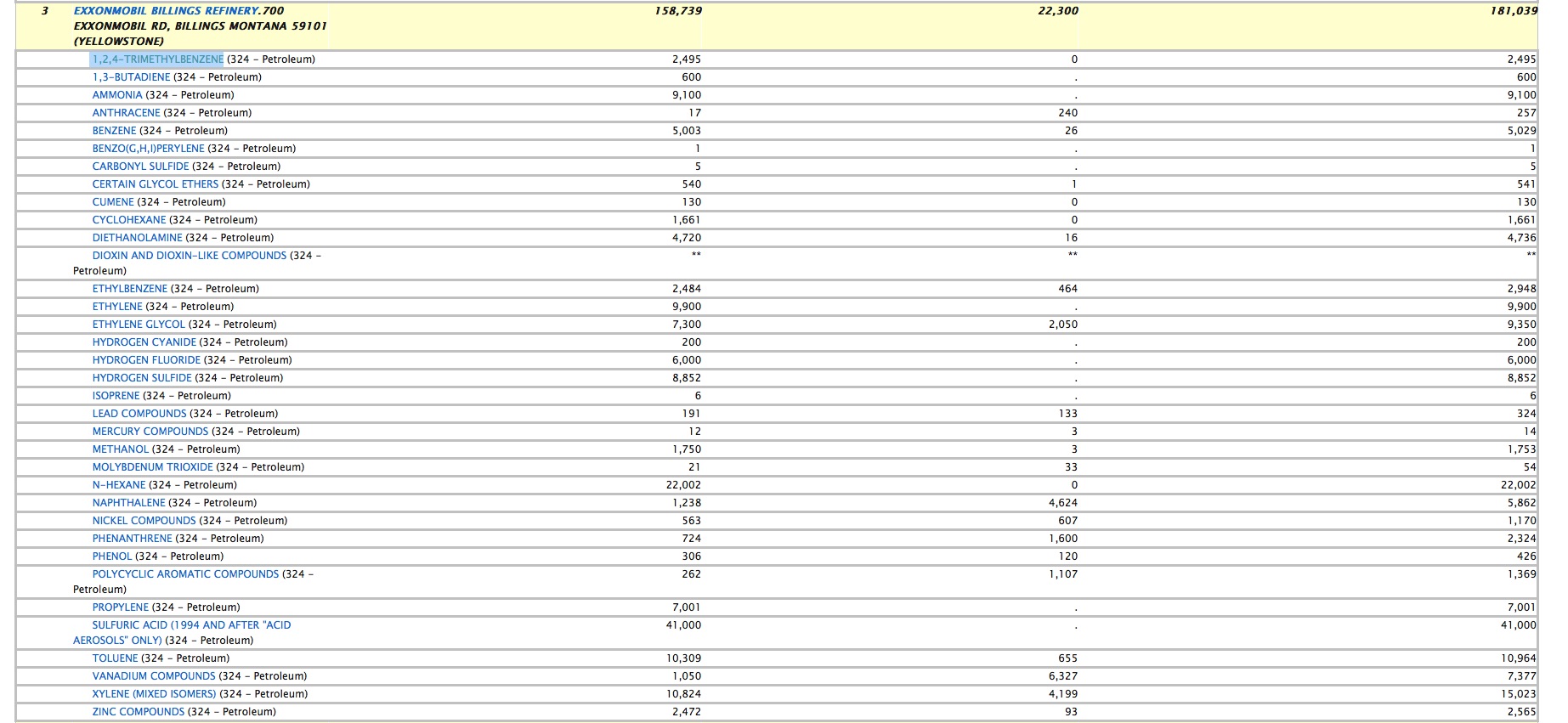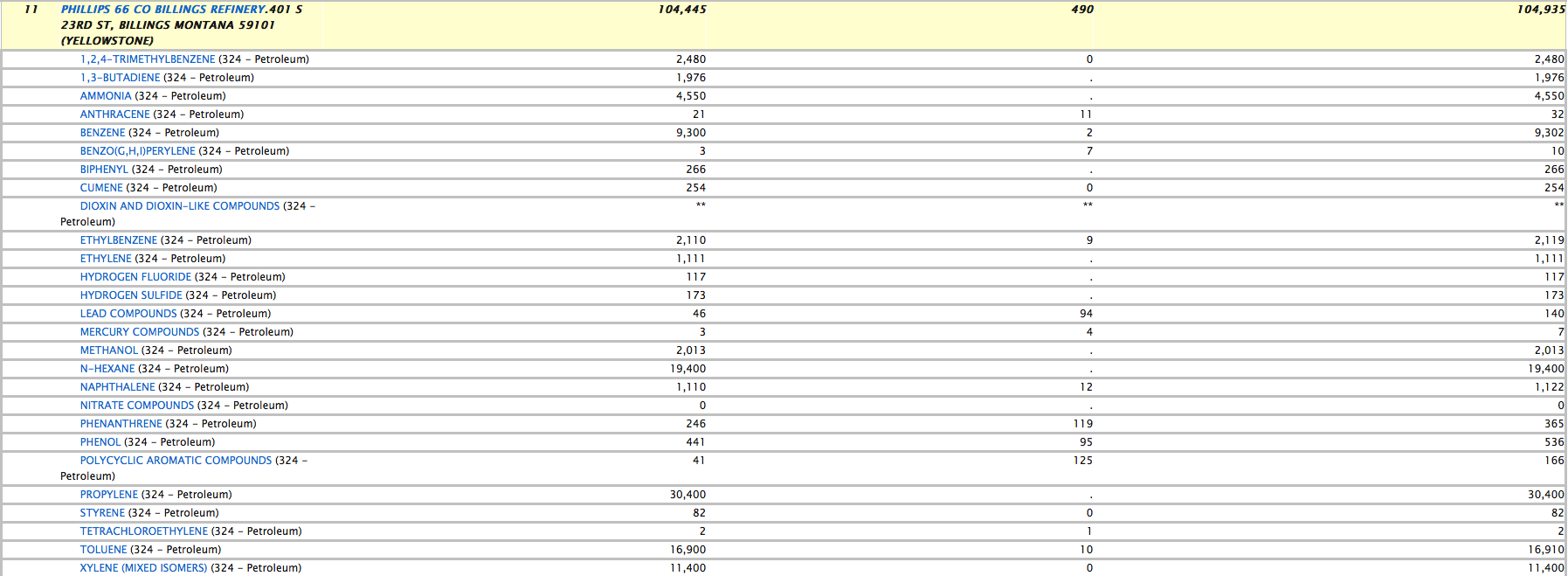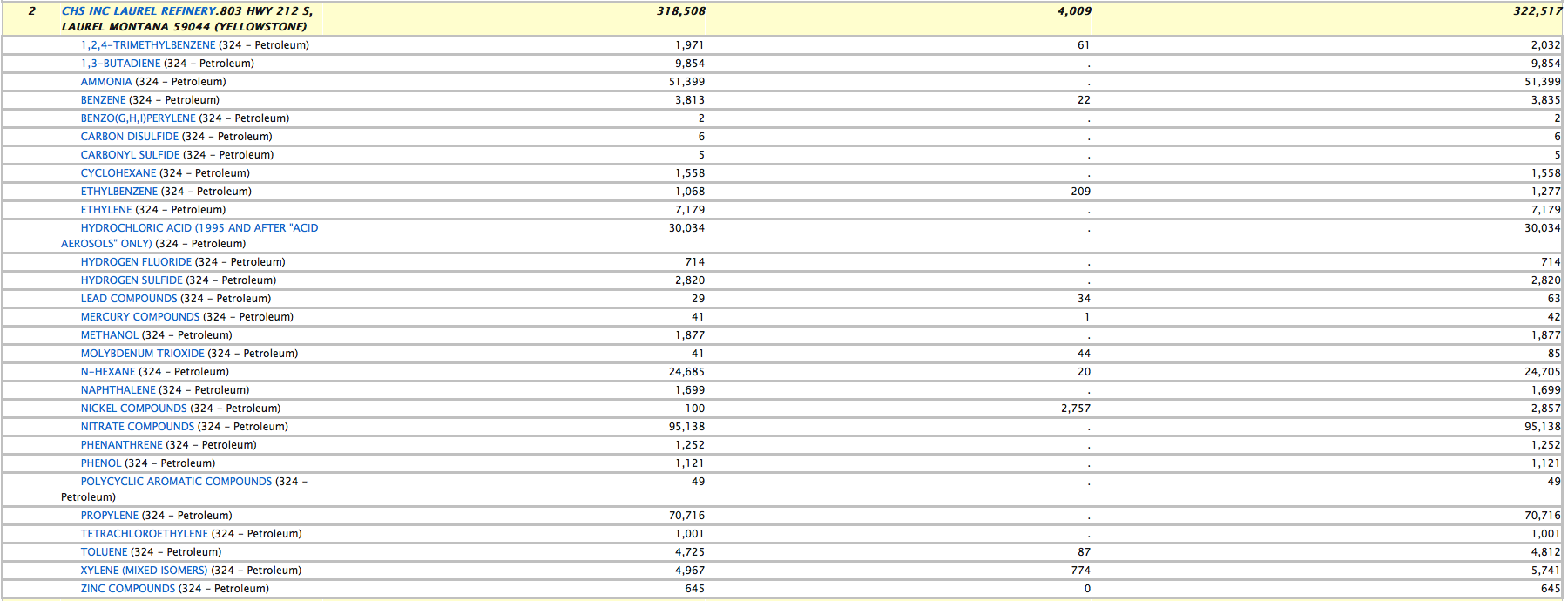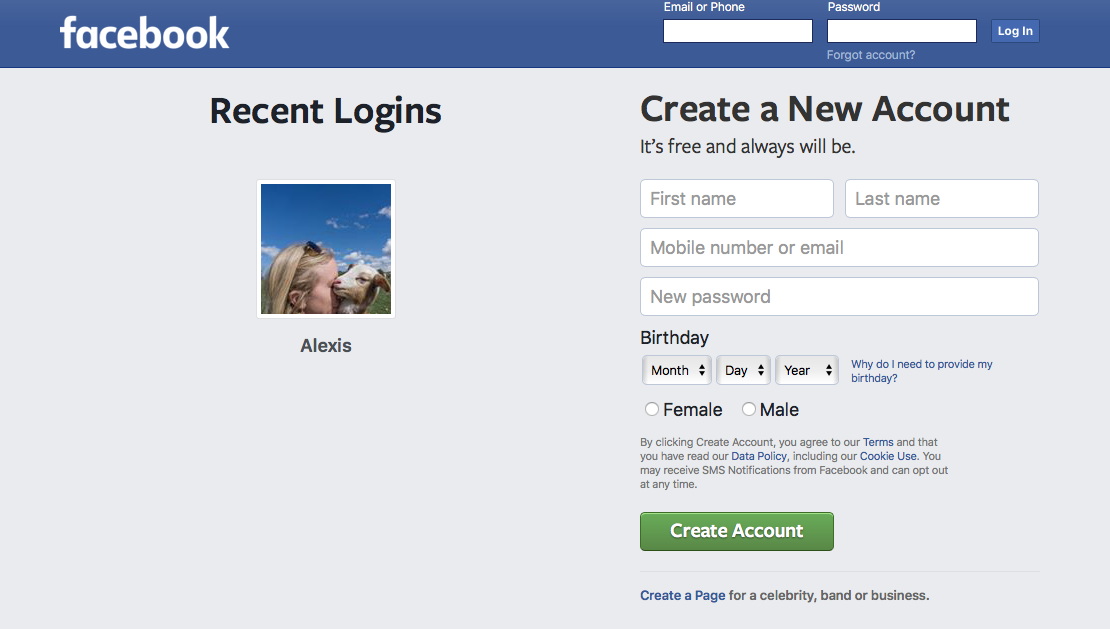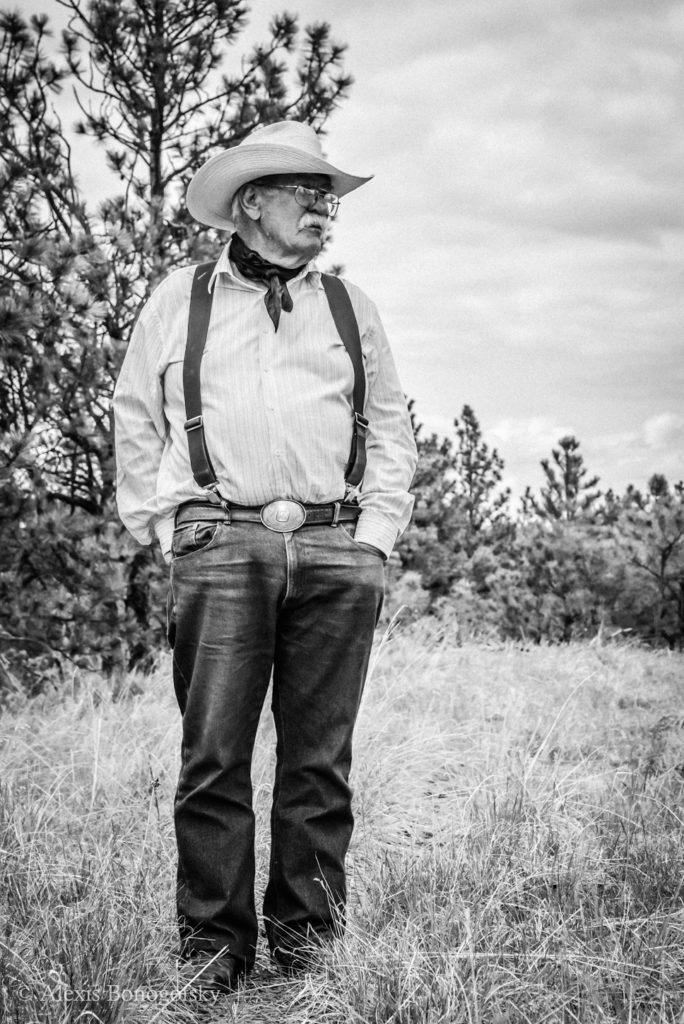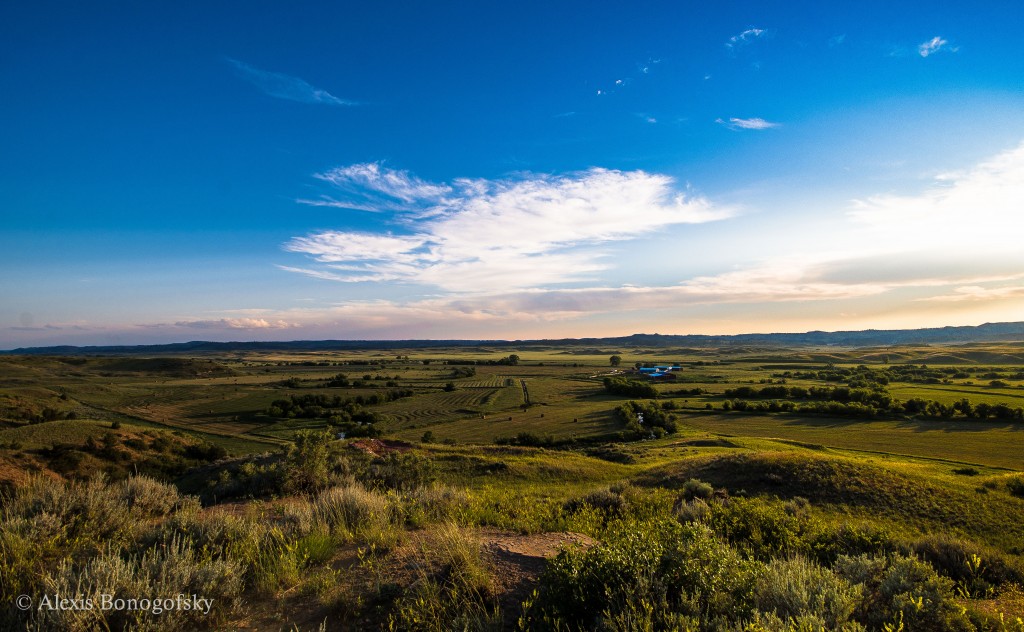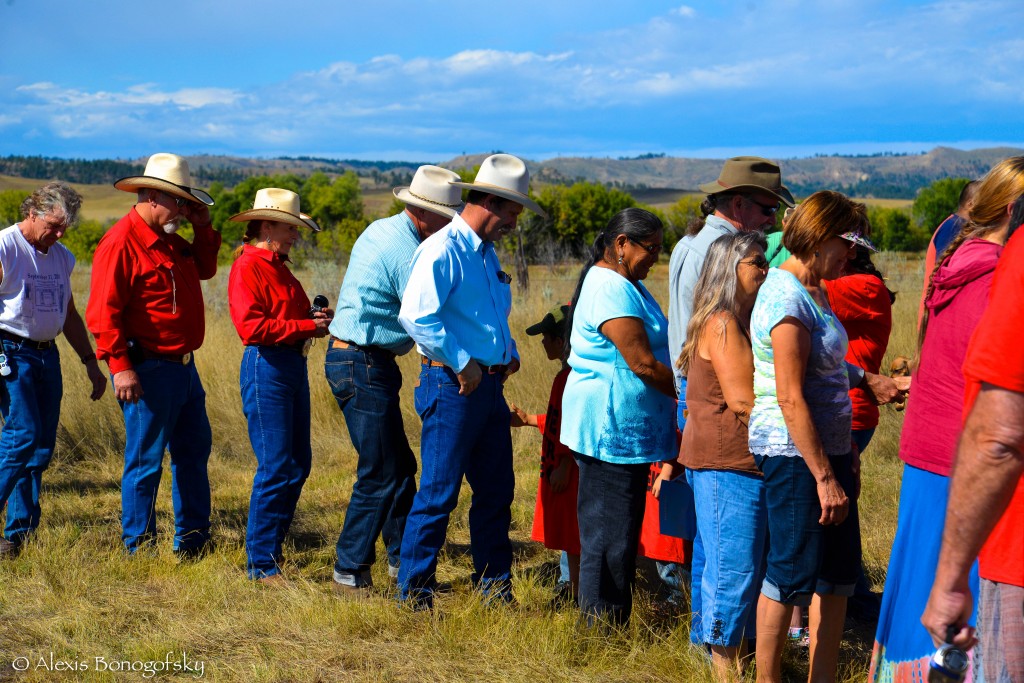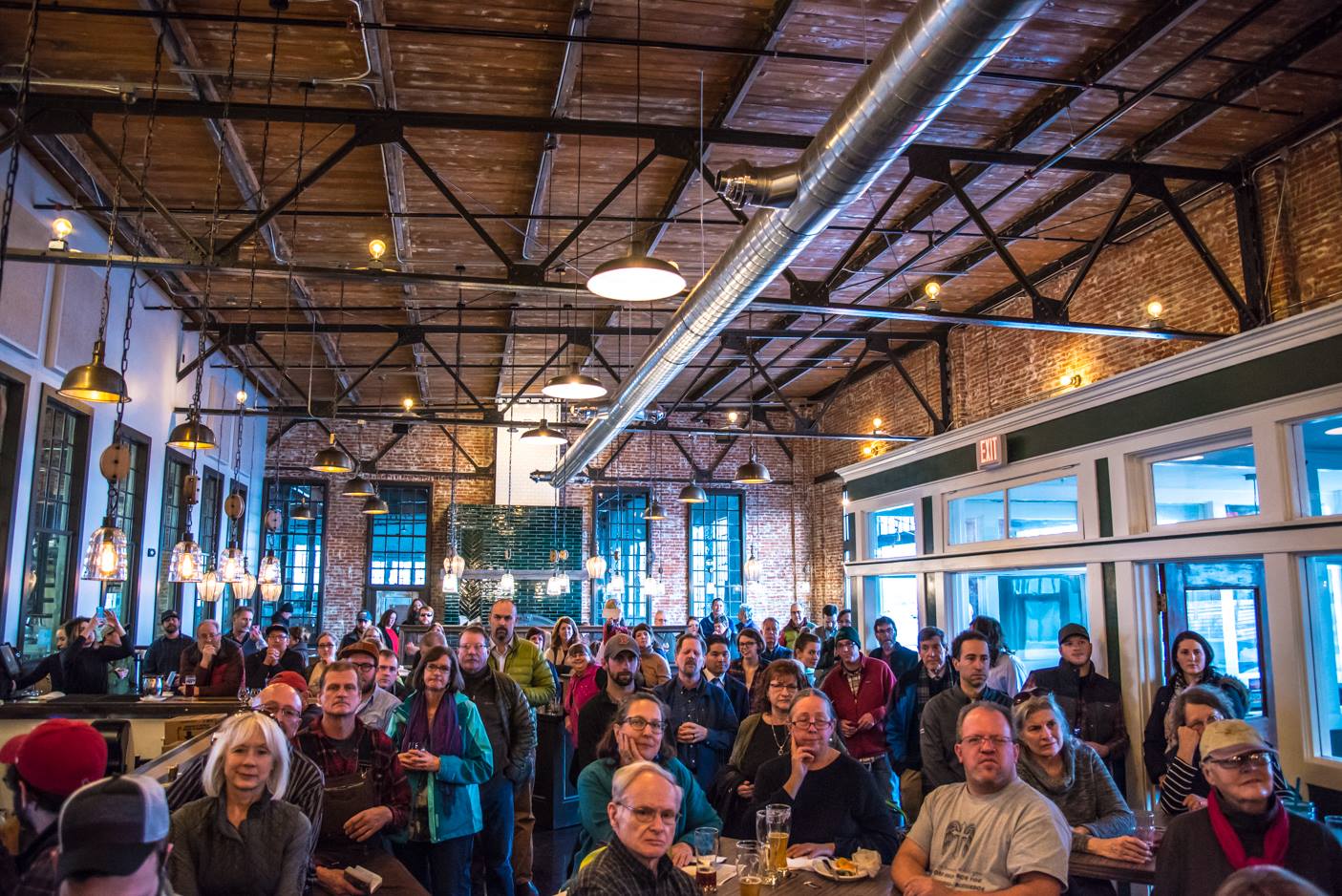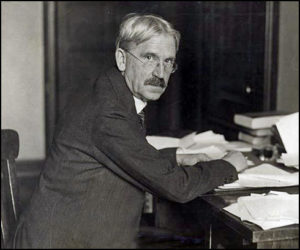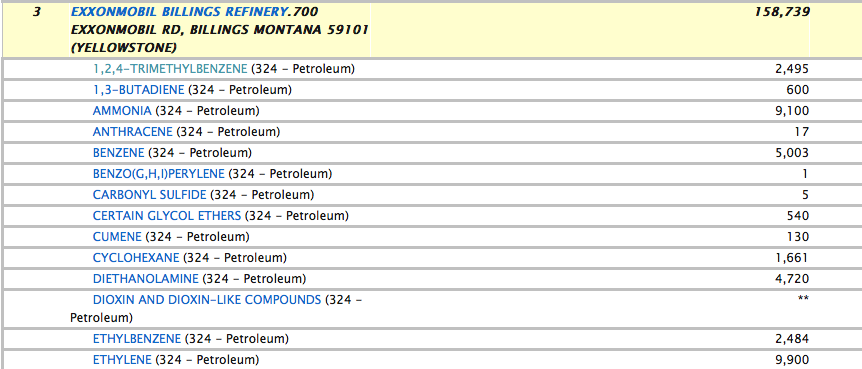
According to an article in the Billings Gazette entitled “Is the Big Sky blowing smoke?” only water vapor comes out of the stacks at the three oil refineries around Billings and the sugar beet factory.
Ryan Wegner, manager of finance and public affairs at Phillips 66 Billings Refinery, explains why anyone who says the Big Sky is filled with anything other than steam is just blowing smoke.
“Many folks see these plumes from our facility and believe they are something other than what they actually are — steam. In the process of refining oil into gasoline and diesel fuel, much heat is generated which then needs to be dissipated through heat exchangers,” he said. “We use a number of different types of heat exchangers at the refinery, and the white plumes rising from the refinery are steam from cooling towers.”
As someone who grew up in Billings and experienced the very well publicized air quality problems from those refineries and the now-shuttered coal-fired power plant, I was taken aback by the article. And you should be too because there are things called facts. The reporter and her editor apparently didn’t think it was necessary to do research on what comes out of those stacks.
Yes, the white puffy clouds are steam but there are dozens of toxic chemicals, gases and heavy metals in that water vapor that you can’t see.
What gets released into the air from the Billings oil refineries?
Luckily, because of our environmental regulations we don’t have to guess what is coming out of the stacks. Each oil refinery is required to report their emissions to the DEQ and the EPA. Setting aside for a moment the problems with self reporting let’s just look at what we know is being released into the air.
There are dozens and dozens of chemicals, gases and some heavy metals. In the chemical and gas category, the Billings’ refineries release naphthalene, toluene, ammonia, anthracene, formaldehyde, vinyl chloride, hydrogen cyanide, carbon dioxide (CO2), sulphur dioxide (SO2), nitrogen oxide (NO2), carbon monoxide, methane, dioxins, hydrogen fluoride, chlorine and benzene. In the category of heavy metals we have lead, mercury, nickel compounds and zinc. These chemicals and gases are not benign. Most of them are known or suspected to cause cancer, birth defects, and seriously impact the environment.
SO2 and NOx have numerous adverse effects on human health and are significant contributors to acid rain, smog and haze. SO2 can pose respiratory illness risks, particularly to children, seniors and people with asthma. And it is no surprise to anyone who has lived in Billings for awhile that we have dealt with unsafe levels of SO2 emissions for decades from multiple sources. Refineries also emit greenhouse gases that contribute to climate change, as well as fugitive volatile organic compounds, known as VOCs.
As the article correctly pointed out, the releases of certain amounts of these chemicals and heavy metals are permitted under the Clean Air Act and other air quality regulations. What Billings residents should know is that how these exposure levels are determined is a highly controversial, political and uncertain process.
Regulatory agencies like the EPA and OSHA are charged with setting “safe” exposure levels for some chemicals by testing for effects at high concentrations and then they use statistical extrapolation and determine levels they deem safe for humans to be exposed to. However, study after study in communities that are around oil refineries have shown a higher incidence of certain types of cancer and respiratory problems.
Health impacts from living around oil refineries
According to the Environmental Health Journal, a peer reviewed scientific journal, the method used to develop safe exposure levels assumes that “if exposure goes up so do effects and if exposure goes down so will effects.” However, recent studies have found that chemicals do not always follow this assumption and they may cause different effects on people at higher and lower levels.
Researchers in Sweden studied one of the largest and most modern oil refineries in Europe called Lysekil. They found that during the past 10 years, communities downwind of the refinery had twice as many cases of leukemia as would be expected based on the refinery’s low emissions.
In the peer reviewed journal Cancer published by the American Cancer Society, a study found a higher cancer incidences rate in regions near refineries and plants that release benzene. There is a fascinating investigative report done by the Pulitzer prize winning Center for Public Integrity about the oil industry’s attempt to downplay the impacts of benzene on human health. In 2015, the Exxon refinery released over 5,000 pounds of benzene, the Phillips 66 refinery in Laurel released 9,300 pounds of it and the CHS refinery released 3,813 pounds.
In the American Journal of Public Health researchers conducted a systematic review of 94 studies that examined residential proximity to environmental hazards, including oil refineries, in relation to adverse reproductive outcomes, childhood cancer, respiratory and cardiovascular conditions and other health problems.
In the 12 studies they reviewed on respiratory illness they found, “residential proximity to both stationary sources of air pollution (industries covered under the Toxic Release Inventory, National Emission Inventory, hazardous air pollutants, petroleum refineries, etc.), and, with a few exceptions, heavily trafficked roads, was significantly associated with asthma hospitalizations.”
In another study in Environmental Health Perspective researchers found that short-term episodes of increased SO2 exposures from refinery stack emissions were associated with a higher number of asthma episodes in nearby children.
There are other types of emissions from the refineries the reporter failed to mention that are extremely concerning to most people that study pollution from oil refineries. Flaring of gases results in emissions of SO2, greenhouse gases, VOCs and hazardous air pollutants. There are also fugitive emissions of VOCs that can result from leaking valves and pumps. Those fugitive emissions can result in numerous health effects, including eye, nose and throat irritation, headaches, loss of coordination, nausea and damage to liver, kidney and the central nervous system.
At the end of the Billings Gazette article was this sentence,
“It’s a common misconception that the exhaust from the refineries and sugar beet factory are harming the environment.”
No, this wasn’t a quote from a public affairs person from the refinery, it was written by the reporter. The Billings Gazette needs to run a big correction on this puff piece. I don’t expect a commentary on the pollution that comes out of the refineries but I do expect the Billings Gazette to report the facts, not spin from public affairs people.
If you are interested in the details of what each refinery said they emitted in 2015, I have included screenshots from the EPA’s Toxic Release Inventory. Please click on each table to increase the size. UPDATE: On Monday April 3, Billings Gazette ran an Op-Ed by Eileen Morris, a long time Billings resident whose friend died from an asthma attack caused by SO2 pollution from the refineries.
Exxon Refinery – 2015 TRI Report. EPA’s Toxic Release Inventory
Phillips 66 – 2015 TRI Report.
CHS Laurel Refinery – 2015 TRI Report.
And since the Sugar Beet Factory was also a part of the story, here is what they reported releasing in 2015.
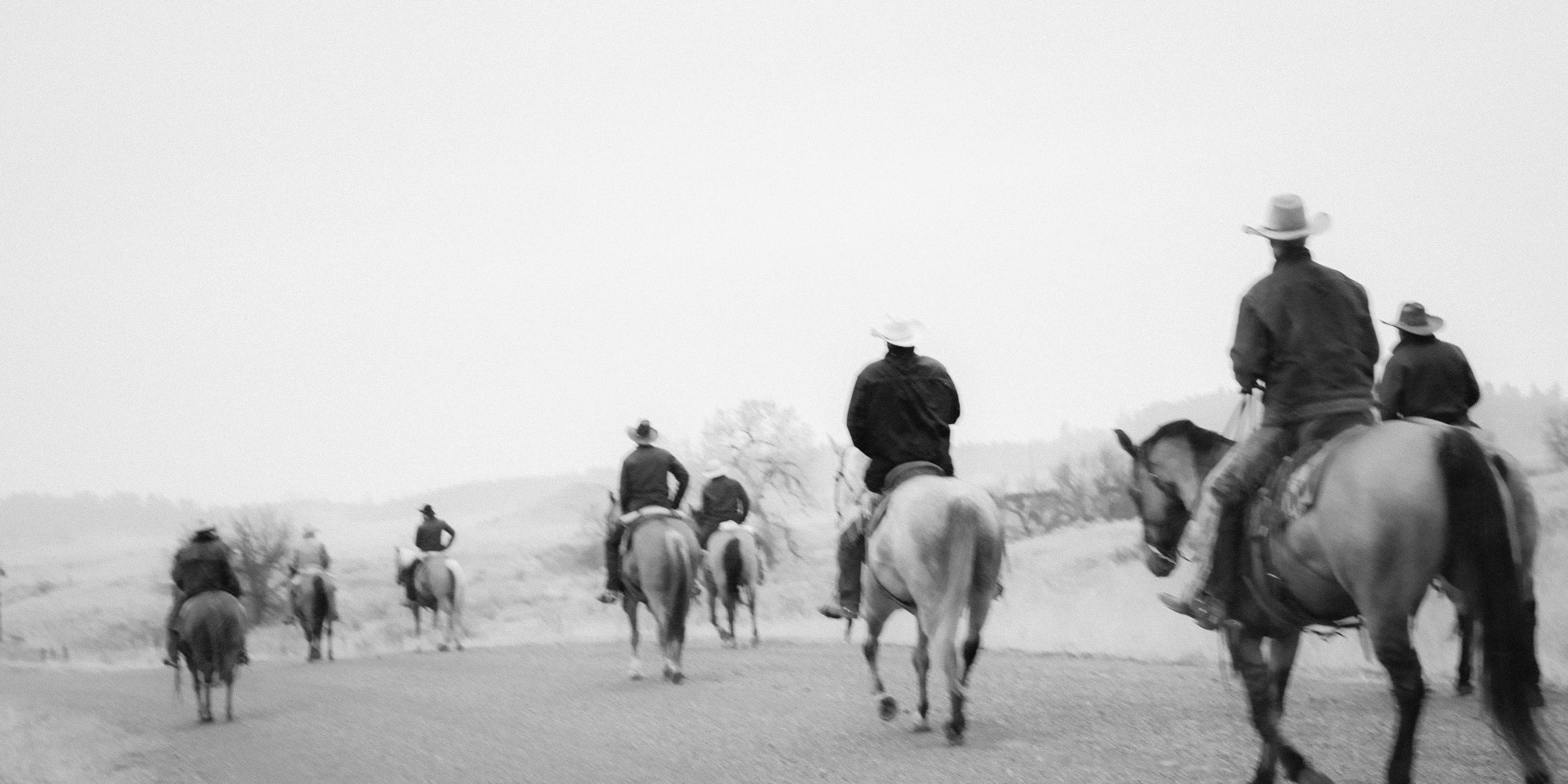
I started this website with a very specific purpose; to write to people in southeast Montana about the issues the media wasn’t covering regarding the Tongue River Railroad and Otter Creek mine including boring policy stuff, rallies, events, gatherings and public hearings.
The title east of Billings came from my friend Wally McRae. Getting to know Wally and learning from him has been one of the great privileges in my life.
Over coffee he would tell me about how the environmental laws weren’t enforced in eastern Montana. State agencies looking the other way as groundwater was contaminated from the Colstrip coal plant. Politicians treating the region like a sacrifice area. I could keep going.
He said, “no one cares what happens EOB.”
Then and there the idea for an east of Billings blog and photographic site was born. I was slightly naive and energetic and committed. I wanted to make people care. I bought a fancy camera and started teaching myself how to use it.
My goal was to provide information to people in a way that was accessible. The goat stories were just for fun. I never thought that people who didn’t live in southeast Montana would read it but they did; more than I ever imagined. Some came for the goats, some came for the coal, some came for the photos.
But then I stopped. We won. The coal mine and railroad died a glorious death at the end of 2015 and the beginning of 2016. I hoped my blog and photos contributed a little to the victory. I was also tired of coal.
I now write for publications that pay me to write. I now take pictures of other places for people who pay me to do it. Both of these outcomes of starting EOB surprised me. Have you heard of imposter syndrome? I think I might have a little of that.
I’m literally always shocked when an editor comes back to me and says they like what I wrote. Really, I think? You must be mistaking me for someone who knows what they are doing.
What jarred me back into east of Billings was an article by David Crisp in Last Best News about the state of Montana blogging sites. When I started reading it I didn’t expect to be mentioned. Or maybe I was hoping I wasn’t going to be mentioned. The guilt of letting the site go dark was creeping up on me but I didn’t think anyone noticed.
I was nearing the end of the article and then this,
“East of Billings, by Alexis Bonogofsky, focuses mostly on the joys of life in Eastern Montana, with occasional essays on politics, environmental issues and photography. The site’s last political post, in April, was titled ‘Why Denise Juneau will beat Ryan Zinke in November.”
My first thought was, well thanks for pointing out how fucking wrong I was about the race. I appreciate that. Second, I don’t write about the joys of living in eastern Montana, I write about goats and coal. I don’t even live in eastern Montana. I live south of Billings if we are getting all technical about it. Grumble, grumble, grumble.
Crisp did me a favor though. It made me think about east of Billings again and what it means not just to me but to people with whom I spent countless hours with fighting for a place we all loved. EOB isn’t just a specific geography. I’ve never thought of it like that. EOB is all the people who have a place that they would do anything to protect; which is pretty relevant in the world we are living in today. EOB is about bringing attention to people and places that get overlooked or ignored.
I have questions, uncertainties and doubts. In the entire scheme of things not many people come to my website; a thousand to a couple thousand per blog if I’m lucky. I wonder if I am wasting my time throwing words out into the sea of internet noise? Also, the time I spend writing each blog is not insignificant.
But then I read something today that gave me the motivation I need to continue writing for EOB. It came from the lead political columnist for Politico who is retiring from his duties after a life long career writing about politics.
“I decline to accept the end of man,” William Faulkner wrote. “I believe that man will not merely endure: he will prevail. It is the writer’s privilege to help man endure by lifting his heart.”
Have I lifted a heart? Just once? Just for the most fleeting of moments?
Then I leave you a happy man, one filled with joy. And don’t worry. We will always have each other.
Hope gets me every time.
If I am able to write and occasionally help someone think a little differently, help someone smile or help someone take action against an injustice in this world then it is worth it. But this go around I’ll be broadening the scope of what I write about in the spirit of EOB and the people who live there. If you are worried I’m giving up writing about eastern Montana, don’t be. I’ll continue to write about it and take pictures of its amazing landscapes and people because, in the words of Wally Mcrae, goddamn I love this country.
If you are going to read one thing I’ve written this year please read this one, it’s important.
As always, thank you for taking the time to read what I write. Let’s see what we can do together.
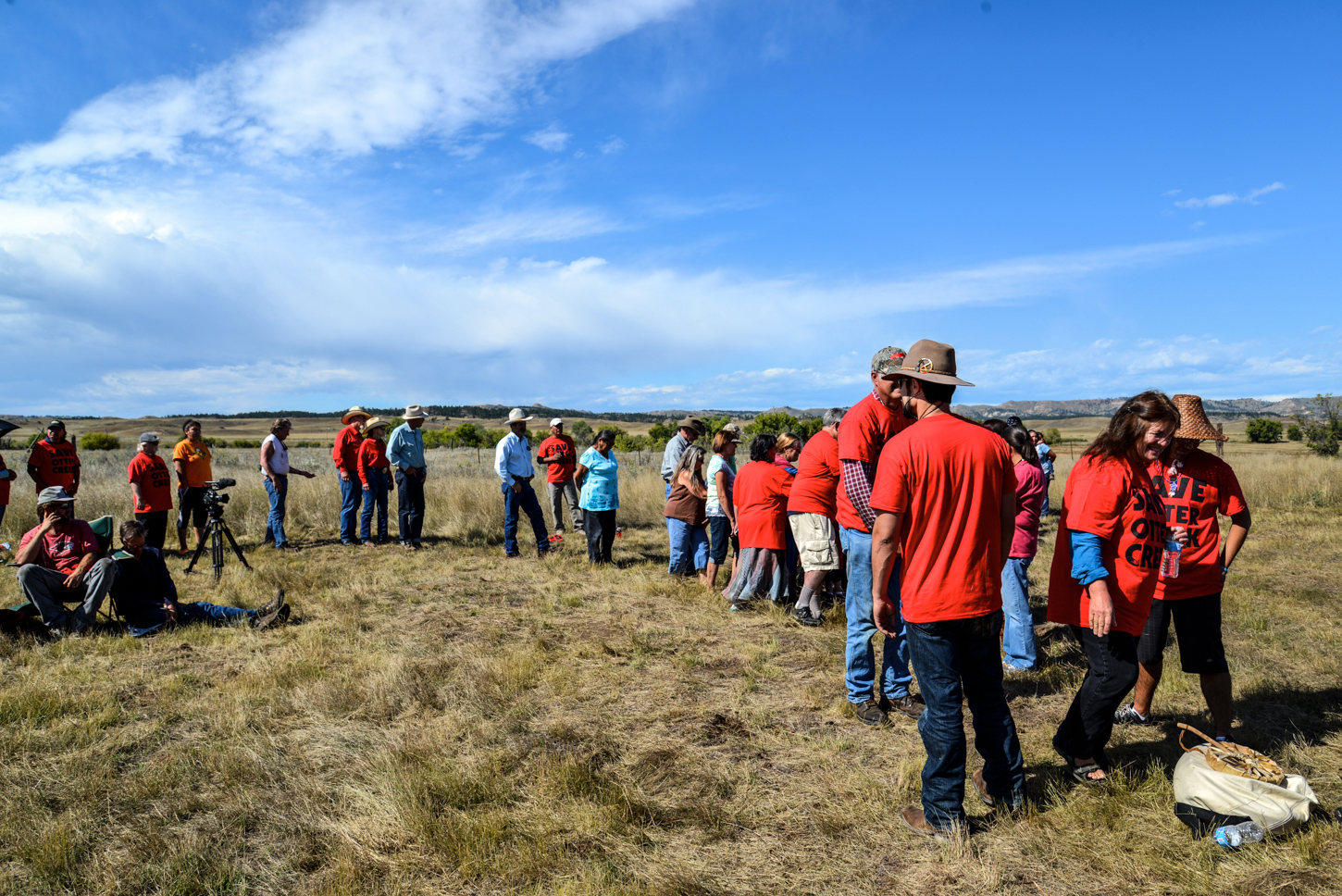
In his last weeks as President of the United States, President Obama has been channeling some of the later work of John Dewey (1859 – 1952), American philosopher, educator and writer. A man whose writings have greatly influenced my thinking on democracy and the importance of public participation.
My copy of his book, The Public and its Problems, is highlighted and underlined and dog-eared but one of his most striking and relevant works and the piece that I believe Obama has been influenced by is entitled Creative Democracy: The Task Before Us, written in 1939 on the brink of the United States entering WWII.
He wrote about the need for the public to continue to recreate our democracy through deliberate and determined effort in an era of extremely complex conditions. Little did he know what we would be facing today. Dewey identifies one of the great challenges of our democracy is thinking that our democracy is something that perpetuates itself automatically, “as if our ancestors had succeeded in setting up a machine that solved the problem of perpetual motion in politics.”
He warns that it is dangerous to think that as long as we are faithful in voting, performing that political duty, our democracy will maintain itself. Voting is not democracy. A sentiment that Obama has echoed in numerous recent speeches. Dewey maintains that we must see democracy as personal way of individual life.
Put into effect it signifies that powerful present enemies of democracy can be successfully met only by the creation of personal attitudes in individual human beings; that we must get over our tendency to think that its [democracy’s] defense can be found in any external means whatever, whether military or civil, if they are separated from individual attitudes so deep-seated as to constitute personal character.
But what does it really mean, at its core, to treat our democracy as a way of life? Our democratic ideals and values can be encoded in statutes and laws but they don’t mean anything unless, as Dewey states, “it is put in force in the attitudes which human beings display to one another in all incidents and relations of daily life.” Dewey said,
To denounce Naziism for intolerance, cruelty and stimulation of hatred amounts to fostering insincerity if, in our personal relations to other persons, if, in our daily walk and conversation, we are moved by racial, color or other class prejudice; indeed, by anything save a generous belief in their possibilities as human beings, a belief which brings with it the need for providing conditions which will enable these capacities to reach fulfillment. The democratic faith in human equality is belief that every human being, independent of the quantity or range of his personal endowment, has the right to equal opportunity with every other person for development of whatever gifts he has. The democratic belief in the principle of leadership is a generous one. It is universal. It is belief in the capacity of every person to lead his own life free from coercion and imposition by others provided right conditions are supplied.
This belief is the radical nature of democracy. Of course, in his time Dewey was accused of an undue, utopian faith in the capacity of people to make intelligent political and moral judgements. Dewey maintained this was not a faith that came to him without experience. He acquired it from his experiences with people over his lifetime. I know what Dewey means. If didn’t ultimately believe what Dewey states about people, there is no way I could emotionally or intellectually continue to do the work I do.
For what is the faith of democracy in the role of consultation, of conference, of persuasion, of discussion, in formation of public opinion, which in the long run is self-corrective, except faith in the capacity of the intelligence of the common man to respond with commonsense to the free play of facts and ideas which are secured by effective guarantees of free inquiry, free assembly and free communication? I am willing to leave to upholders of totalitarian states of the right and the left the view that faith in the capacities of intelligence is utopia. For the faith is so deeply embedded in the methods which are intrinsic to democracy that when a professed democrat denies the faith he convicts himself of treachery to his profession.
But, treating democracy as something that lives within us and not something that is external is a lot of work. It is easier to focus our hopes and fears, our anger and our elation on individuals because the alternative is scary. The alternative is to realize that our societal and political problems are complicated and intertwined and that the solutions require long-term multi-generational thinking and planning, cooperation and conflict, failures and successes that involve engaging the actual public, not the public we want or handpick, but the public that exists right now, today.
Intolerance, abuse, calling of names because of differences of opinion about religion or politics or business, as well as because of differences of race, color, wealth or degree of culture are treason to the democratic way of life. For everything which bars freedom and fullness of communication sets up barriers that divide human beings into sets and cliques, into antagonistic sects and factions, and thereby undermines the democratic way of life. Merely legal guarantees of the civil liberties of free belief, free expression, free assembly are of little avail if in daily life freedom of communication, the give and take of ideas, facts, experiences, is choked by mutual suspicion, by abuse, by fear and hatred. These things destroy the essential condition of the democratic way of living even more effectually than open coercion which- as the example of totalitarian states proves-is effective only when it succeeds in breeding hate, suspicion, intolerance in the minds of individual human beings.
Here is the full un-edited essay. I highly recommend spending some time with it.
Creative Democracy: The Task Before Us
By John Dewey
Under present circumstances I cannot hope to conceal the fact that I have managed to exist eighty years. Mention of the fact may suggest to you a more important fact-namely, that events of the utmost significance for the destiny of this country have taken place during the past four-fifths of a century, a period that covers more than half of its national life in its present form. For obvious reasons I shall not attempt a summary of even the more important of these events. I refer here to them because of their bearing upon the issue to which this country committed itself when the nation took shape-the creation of democracy, an issue which is now as urgent as it was a hundred and fifty years ago when the most experienced and wisest men of the country gathered to take stock of conditions and to create the political structure of a self-governing society.
For the net import of the changes that have taken place in these later years is that ways of life and institutions which were once the natural, almost the inevitable, product of fortunate conditions have now to be won by conscious and resolute effort. Not all the country was in a pioneer state eighty years ago. But it was still, save perhaps in a few large cities, so close to the pioneer stage of American life that the traditions of the pioneer, indeed of the frontier, were active agencies in forming the thoughts and shaping the beliefs of those who were born into its life. In imagination at least the country was still having an open frontier, one of unused and unappropriated resources. It was a country of physical opportunity and invitation. Even so, there was more than a marvelous conjunction of physical circumstances involved in bringing to birth this new nation. There was in existence a group of men who were capable of readapting older institutions and ideas to meet the situations provided by new physical conditions-a group of men extraordinarily gifted in political inventiveness. At the present time, the frontier is moral, not physical. The period of free lands that seemed boundless in extent has vanished. Unused resources are now human rather than material. They are found in the waste of grown men and women who are without the chance to work, and in the young men and young women who find doors closed where there was once opportunity. The crisis that one hundred and fifty years ago called out social and political inventiveness is with us in a form which puts a heavier demand on human creativeness.
At all events this is what I mean when I say that we now have to re-create by deliberate and determined endeavor the kind of democracy which in its origin one hundred and fifty years ago was largely the product of a fortunate combination of men and circumstances. We have lived for a long time upon the heritage that came to us from the happy conjunction of men and events in an earlier day. The present state of the world is more than a reminder that we have now to put forth every energy of our own to prove worthy of our heritage. It is a challenge to do for the critical and complex conditions of today what the men of an earlier day did for simpler conditions. If I emphasize that the task can be accomplished only by inventive effort and creative activity, it is in part because the depth of the present crisis is due in considerable part to the fact that for a long period we acted as if our democracy were something that perpetuated itself automatically; as if our ancestors had succeeded in setting up a machine that solved the problem of perpetual motion in politics. We acted as if democracy were something that took place mainly at Washington and Albany-or some other state capital-under the impetus of what happened when men and women went to the polls once a year or sowhich is a somewhat extreme way of saying that we have had the habit of thinking of democracy as a kind of political mechanism that will work as long as citizens were reasonably faithful in performing political duties.
Of late years we have heard more and more frequently that this s not enough; that democracy is a way of life. This saying gets down to hard pan. But I am not sure that something of the externality of the old idea does not cling to the new and better statement. In any case we can escape from this external way of thinking only as we realize in thought and act that democracy is a personal way of individual life; that it signifies the possession and continual use of certain attitudes, forming personal character and determining desire and purpose· in all the relations of life. Instead of thinking of our own dispositions and habits as accommodated to certain institutions we have to learn to think of the latter as expressions, projections and extensions of habitually dominant personal attitudes. Democracy as a personal, an individual, way of life involves nothing fundamentally new. But when applied it puts a new practical meaning in old ideas. Put into effect it signifies that powerful present enemies of democracy can be successfully met only by the creation of personal attitudes in individual human beings; that we must get over our tendency to think that its defense can be found in any external means whatever, whether military or civil, if they are separated from individual attitudes so deepseated as to constitute personal character.
Democracy is a way of life controlled by a working faith in the possibilities of human nature. Belief in the Common Man is a familiar article in the democratic creed. That belief is without basis and significance save as it means faith in the potentialities of human nature as that nature is exhibited in every human being irrespective of race, color, sex, birth and family, of material or cultural wealth. This faith may be enacted in statutes, but it is only on paper unless it is put in force in the attitudes which human beings display to one another in all the incidents and relations of daily life. To denounce Naziism for intolerance, cruelty and stimulation of hatred amounts to fostering insincerity if, in our personal relations to other persons, if, in our daily walk and conversation, we are moved by racial, color or other class prejudice; indeed, by anything save a generous belief in their possibilities as human beings, a belief which brings with it the need for providing conditions which will enable these capacities to reach fulfilment. The democratic faith in human equality is belief that every human being, independent of the quantity or range of his per· sonal endowment, has the right to equal opportunity with every other person for development of whatever gifts he has. The democratic belief in the principle of leadership is a generous one. It is universal. It is a belief in the capacity of every person to lead his own life free from coercion and imposition by others provided right conditions are supplied.
Democracy is a way of personal life controlled not merely by faith in human nature in general but by faith in the capacity of human beings for intelligent judgement and action if proper conditions are furnished. I have been accused more than once and from opposed quarters of an undue, utopian, faith in the possibilities of intelligence and in education as a correlate of intelligence. At all events, I did not invent this faith. I acquired it from my surroundings as far as those surroundings were animated by the democratic spirit. For wha tis the faith of democracy in the old of consolation, of conference, of persuasion, of discussion, in the formation of public opinion, which in the long run is self-corrective, except faith in the capacity of the intelligence of the common man to respond with commonsense to teh free play of facts and ideas which are secured by effective guarantees of free inquiry, free assembly and free communication? I am willing to leave to upholders of totalitarian states of the right and the left the view that fain in the capacities of intelligence is utopian. For the faith is so deeply embedded in the methods which are intrinsic to democracy that when a professed democrat denies teh faith he convicts himself treachery to his profession.
When I think of the conditions under which men and women are living in many foreign countries today, fear of espionage, with danger hanging over the meeting of friends for friendly conversation in private gatherings, I am inclined to believe that the heart and final guarantee of democracy is in free gathering of neighbors on the street corner to discuss back and forth what is read in uncensored news of the day, and in gatherings of friends in the living rooms of house and apartments to converse freely with one another. Intolerance, abuse, calling of names because of differences of opinion about religion or politics or business, as well as because of differences of race, color, wealth or degree of culture are treason to the democratic way of life. For everything which bars freedom and fullness of communication sets up barriers that divide human beings into sets and cliques, into antagonistic sects and factions, and thereby undermines the democratic way of life. Merely legal guarantees of the civil liberties of free belief, free expression, free assembly are of little avail if in daily life freedom of communication, the give and take of ideas, facts, experiences, is choked by mutual suspicion: by abuse, by fear and hatred. These things destroy the essential condit10n of the democratic way of living even more effectually than open coercion which-as the example of totalitarian states proves-is effective only when it succeeds in breeding hate, suspicion, intolerance in the minds of individual human beings.
Finally, given the two conditions just mentioned, democracy as a way of life is controlled by personal faith in personal day by day working together with others. Democracy is the belief that even when needs and ends or consequences are different for each individual, the habit of amicable cooperation-which may include, as in sport, rivalry and competition-is itself a priceless addition to life. To take as far as possible every conflict which arises-and they are bound to arise-out of the atmosphere and medium of force, of violence as a means of settlement into that of discussion and of intelligence is to treat those who disagree, even profoundly-with us as those from whom we may learn and in so far, as friends. A genuinely democratic faith in peace is faith in the possibility of conducting disputes, controversies and conflicts as cooperative undertakings in which both parties learn by giving the other a chance to express itself, instead of having one party conquer by forceful suppression of the other-a suppression which is none the less one of violence when it takes place by psychological means of ridicule, abuse, intimidation, mstead of by overt imprisonment or in concentration camps. To cooperate by giving differences a chance to show themselves cause of the belief that the expression of difference is not only a right of the other persons but is a means of enriching one’s own life-experience, is inherent in the democratic personal way of life.
If what has been said is charged with being a set of moral com- monplaces, my only reply is that that is just the point in saying them. For to get rid of the habit of thinking of democracy as something institutional and external and to acquire the habit f treating it as a way of personal life is to realize that democracy is a moral ideal and so far as it becomes a fact is a moral fact. It is to realize that democracy is a reality only as it is indeed a commonplace of living.
Since my adult years have been given to the pursuit of philosophy, I shall ask your indulgence if in concluding I state briefly the democratic faith in the formal terms of a philosophic position. So stated, democracy is belief in the ability of human experience to generate the aims and methods by which further experience will grow in ordered richness. Every other form of moral and social faith rests upon the idea that experience must be subjected at some point or other to some form of external control; to some “authority” alleged to exist outside the processes of experience. Democracy is the faith that the process of experience is more important than any special result attained, so that special results achieved are of ultimate value only as they are used to enrich and order the ongoing process. Since the process of experience is capable of being educative, faith in democracy is all one with faith in experience and education. All ends and values that are cut off from the ongoing process become arrests, fixations. They strive to fixate what has been gained instead of using it to open the road and point the way to new and better experiences.
If one asks what is meant by experience in this connection my reply is that it is that free interaction of individual human beings with surrounding conditions, especially the human surroundings, which develops and satisfies need and desire by increasing knowledge of things as they are. Knowledge of conditions as they are is the only solid ground for communication and sharing; all other communication means the subjection of some persons to the personal opinion of other persons. Need and desire-out of which grow purpose and direction of energy-go beyond what exists, and hence beyond knowledge, beyond science. They continually open the way into the unexplored and unattained future. Democracy as compared with other ways of life is the sole way of living which believes wholeheartedly in the process of experience as end and as means; as that which is capable of generating the science which is the sole dependable authority for the direction of further experience and which releases emotions, needs and desires so as to call into being the things that have not existed in the past. For every way of life that fails in its democracy limits the contacts, the exchanges, the communications, the nteractions by which experience is steadied while it is also enlarged and enriched. The task of this release and enrichment is one that has to be carried on day by day. Since it is one that can have no end till experience itself comes to an end, the task of democracy is forever that of creation of a freer and more humane experience in which all share and to which all contribute.

